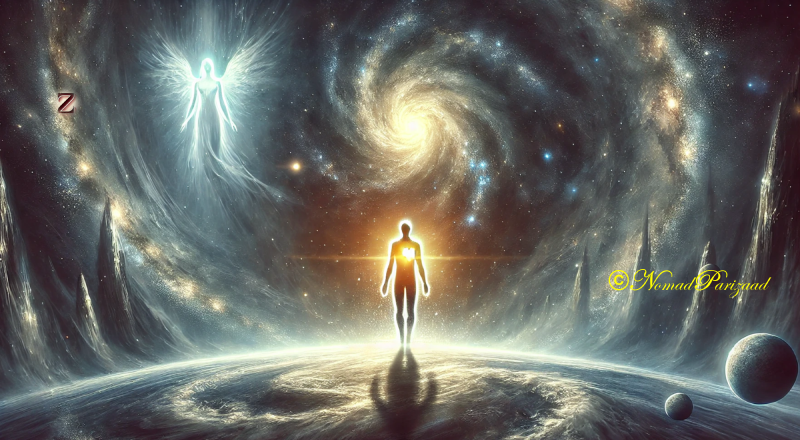The human heart is a complex and mysterious thing, capable of holding both immense compassion and deep cruelty. It aches when we witness the suffering of those we care for, but strangely, it can also find a dark satisfaction in the pain of others. How is it that the same heart, which breaks for those it cares for, can also revel in vengeance, in seeing the downfall of those with different opinions or belonging to another community—even though they might be good and innocent at heart as well?
Perhaps this duality is a reflection of the universe from which we come—a universe that is both a cradle for life and a harbinger of death. The coldness of the universe, indifferent and unfeeling, is written into our very bones. We are born of its stardust, its chaos, and in that sense, we do carry its coldness. But we also carry something else, something uniquely human: the capacity to love, to hope, to dream of justice even when we live in a world that seems devoid of it.
This interplay of coldness and humanity is perhaps the most profound mystery of our existence. We are creatures of nature, shaped by its blind forces, and yet we are not entirely like it. We yearn for something more—something greater than survival, something beyond the primal instincts of life and death. We long for justice, for fairness, for the angels of heaven to descend and right the wrongs of the world. And when they do not come, when the innocent perish and the wicked seem to thrive, we question everything: is it all an illusion? Is there no guardian of justice, no higher force that hears the cries of the suffering?
There are moments when it feels as though the universe mocks us with its indifference. Stars burn brightly, only to fade into nothingness, just as some lives are filled with joy and light before they are snuffed out too soon. It is tempting to see this as a cosmic travesty, a cruel joke played on us by forces we cannot understand. And perhaps it is. Perhaps some humans, like stars, are destined to glow for a brief moment and then vanish without reason or justice.
But why do we still hope? Why, even in the face of this coldness, do we continue to believe that justice exists, or at least that it should exist? Why do we still raise our hands to the heavens, pleading for rescue, even when it never seems to come?
Maybe the angels of natural justice are not separate beings waiting in the wings to intervene, but instead, they are the quiet voices within us, urging us to act with compassion. Perhaps they are not divine guardians descending from the sky but the better parts of ourselves—the parts that long for justice and that ache for the suffering of others.
It could be that we are destined not to know the answers to these great mysteries. Perhaps we will never understand why some suffer while others do not, or why the universe seems so indifferent to our pain. But maybe the purpose is not in knowing but in feeling. In the coldness of the universe, we are the ones who feel warmth, who experience the strange, bittersweet interplay between compassion and cruelty, hope and despair.
If we are destined never to know, then perhaps we are destined to search. And in that search, in the act of questioning, we create meaning where there was none. Maybe that is the secret—the universe does not offer justice, nor does it promise rescue, but we, as conscious beings, can create it. We can be the ones to rescue, to love, to carry the weight of hope even when all seems lost.
In this way, the coldness of the universe and the warmth of humanity coexist. We may be small, fragile beings in a vast, uncaring cosmos, but within us, we hold the power to shape our own stories. And maybe, just maybe, that is enough.
